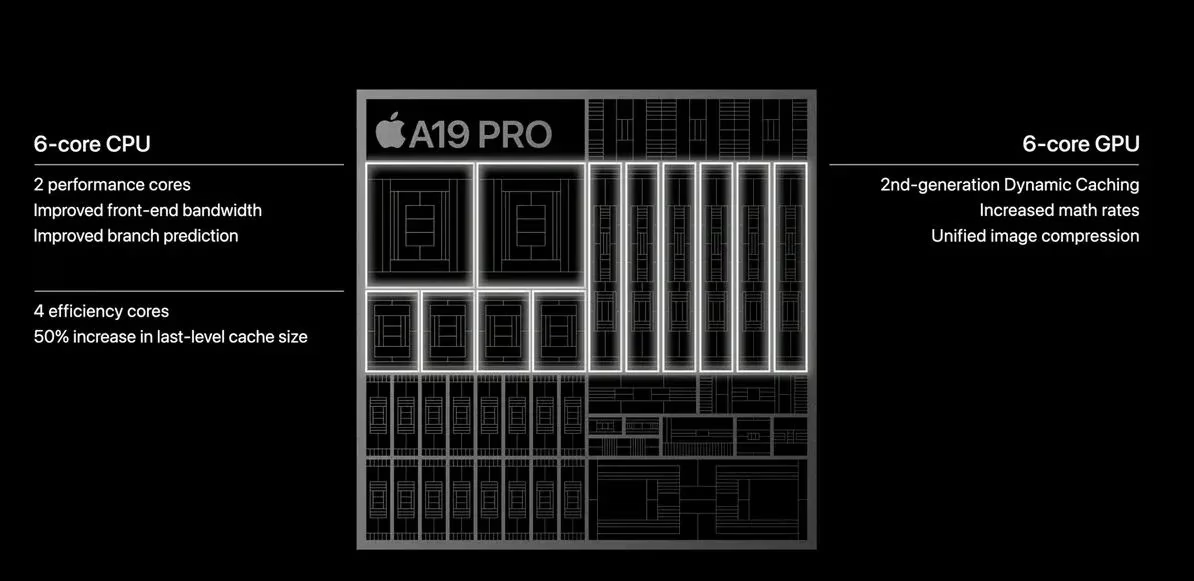Apple's A19 Pro Chip: A Powerful Contender, But Is It Enough?
Apple's latest silicon, the A19 Pro, has landed with the iPhone 17 series, and the tech world is abuzz. Touted as a significant leap forward, it promises enhanced performance and efficiency. But as the dust settles from the initial fanfare, a closer look at early benchmarks and competitive analyses reveals a more nuanced picture. While the A19 Pro certainly flexes its muscles, it's facing increasingly formidable competition from Qualcomm and MediaTek, who aren't standing still.
Performance Benchmarks: A Mixed Bag
Notably, initial leaked benchmarks paint a complex portrait of the A19 Pro's capabilities. While it continues Apple's tradition of excelling in single-core performance – a crucial metric for everyday responsiveness and many app functions – its multi-core performance appears to be facing a tougher challenge than in previous years. Reports suggest that even in an underclocked state, some unreleased Qualcomm Snapdragon chips, like the upcoming Snapdragon 8 Elite Gen 5, and Samsung's Exynos 2600, are showing up to 18% faster in multi-core tests. This is a significant shift; for years, Apple's chips have largely dominated across the board.
However, it's not all bad news for Cupertino. The A19 Pro's GPU performance is reportedly seeing a substantial upgrade. Leaks indicate its graphics capabilities are now rivaling Apple's own M-series chips in certain benchmarks, like Geekbench 6 Metal. This "huge leap" in graphics power is fantastic news for mobile gamers and anyone pushing their device with graphically intensive applications. It suggests Apple is prioritizing not just raw processing but also the visual experience, which is increasingly important for immersive mobile use.
Efficiency vs. Raw Power: The Ongoing Debate
Interestingly, Apple seems to be doubling down on its efficiency strategy with the A19 Pro. While competitors are pushing for ever-higher clock speeds, Apple's focus appears to be on delivering strong performance while minimizing power consumption. This translates to potentially better battery life and, perhaps more importantly, sustained performance under load. We've all experienced phones that start fast but quickly throttle down when pushed. Apple's approach aims to avoid that, offering a more consistent experience over longer periods.
This efficiency-first mindset, however, might be why it's not outright crushing the competition in every synthetic benchmark. Qualcomm, for instance, is rumored to be focusing on raw speed with its next-gen Snapdragon chips. MediaTek, too, has made significant strides, with its Dimensity series showing impressive efficiency gains in the past. While the A19 Pro might still hold an edge in single-core tasks and overall system fluidity, the gap in multi-core grunt is narrowing. It's a fascinating arms race, and the ultimate winner for consumers will depend on what they value most: peak theoretical speed or consistent, long-lasting performance.
What This Means for the Smartphone Landscape
So, what's the big deal? This tightening competition is actually great news for consumers across the board. Apple's A19 Pro, even with its reported multi-core challenges, is still a powerhouse. It ensures that the iPhone 17 Pro models will offer a buttery-smooth experience for the vast majority of users and push the boundaries for mobile gaming and AI tasks.
But it also signals that Qualcomm and MediaTek are not just catching up; they're actively innovating to challenge Apple's dominance. For Android users, this means we can anticipate even more powerful and efficient processors in upcoming flagship devices. The pressure is on all manufacturers to deliver compelling performance, whether it's through raw speed, advanced AI capabilities, or superior power management.
The A19 Pro's integrated neural accelerator within each GPU core hints at Apple's continued investment in on-device AI. This is a trend we're seeing across the industry, with chips designed to handle complex AI tasks locally, improving privacy and speed. It'll be fascinating to see how these AI capabilities are leveraged in the iPhone 17's software.
Ultimately, the A19 Pro isn't just another chip; it's a statement. It shows Apple is refining its winning formula, focusing on a balanced approach to performance and efficiency. Yet, the whispers from the Android camp suggest the gauntlet has indeed been thrown down, and the next generation of mobile silicon promises to be more competitive than ever. It's an exciting time to be following the smartphone chip wars!
